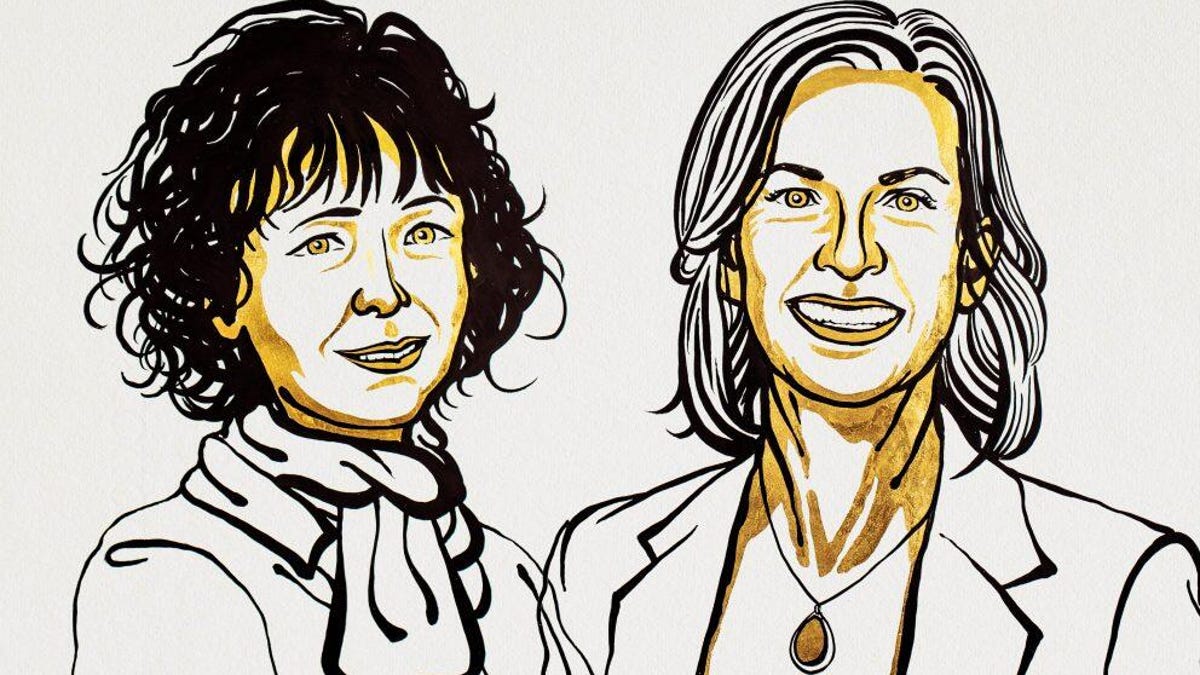Nobel Prize in chemistry goes to two scientists for CRISPR gene-editing tool
The technology is already being used to create new cancer therapies.

Emmanuelle Charpentier (left) and Jennifer Doudna were awarded the Nobel Prize in Chemistry 2020 for the CRISPR/Cas9 genetic tool.
Emmanuelle Charpentier and Jennifer A. Doudna were awarded on Wednesday the 2020 Nobel Prize in Chemistry for developing the gene-splicing technology known as CRISPR/Cas9, which has already begun to revolutionize genetic medicine. Previously, gene editing was a time-consuming, imprecise process. But with CRISPR, doctors can rewrite genetic information almost as easily as computer programmers edit computer code.
The implications for health science are virtually limitless. Already, the technology has been used to develop cancer treatments that are now in clinical trials, but it's the dream of curing inherited, genetic diseases that has the scientific community most hopeful.
Charpentier, who is French, is director of the Berlin-based Max Planck Unit for the Science of Pathogens. Doudna, who is American, is a professor at the University of California, Berkeley.
The anagram behind CRISPR/Cas9 is a mouthful -- "clustered regularly interspaced short palindromic repeats" and "CRISPR-associated protein 9" -- but what it actually does is basically allow scientists to change small snippets of genetic code in both plants and animals quickly, easily and cheaply.
"It has not only revolutionized basic science, but also resulted in innovative crops and will lead to ground-breaking new medical treatments," said Claes Gustafsson, chair of the Nobel Committee for Chemistry.

